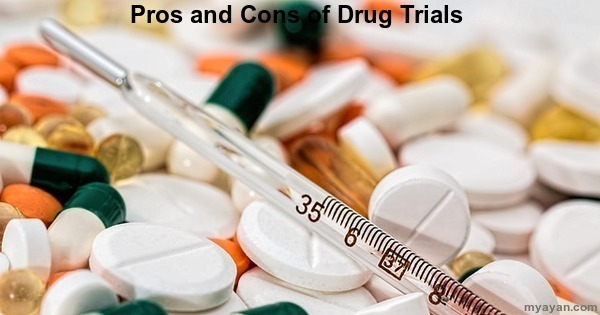Contemplating the pros and cons of drug trials essential part of the process of developing new medications and drugs. While these trials can provide valuable insight into how a drug will behave in different scenarios, they also come with risks. In this article, we'll discuss the pros and cons of drug trials so that people can be fully aware of what they are about to participate in.
Clinical trials are win-win for both participants and pharma companies. Drug companies get to test their drug’s efficiency while participants get compensated for doing so. Here are some other pros of drug trials.
Drug trials can provide valuable insight into how a drug may interact with the body. By testing drugs on volunteers, researchers can better understand potential side effects and how the drug works in different scenarios. This can help ensure that medications are safe and effective before they reach the market.
Participating in a drug trial can have its own set of benefits. Volunteers may receive free medical care and access to new treatments unavailable elsewhere. In addition, volunteers may be compensated monetarily for their participation in the study.
By participating in drug trials, volunteers are actively helping to advance medical science. The data and results collected from such studies can be used to help develop new treatments and medications that could improve health outcomes for people worldwide.
Some people may find satisfaction or accomplishment from participating in a drug trial. Knowing that one’s contribution could lead to improved treatments for others can provide volunteers with a great sense of pride and self-fulfilment.
Drug trials may also provide free treatments or medications to those who participate. Given that most trials are done for Cancer, patients can participate in the trials expecting a better treatment for their current medical condition. compensation is also often considered among drug trial pros for people looking for money.
Though clinical trials seem to have no problems at all, severe hidden issues should be thrown under the light. The prominent cons of drug trials include the following:
Participating in a drug trial comes with some risk of side effects. Even after being tested in a laboratory, there is no guarantee that the drug will not cause any adverse reactions. In some cases, the side effects may be severe or even life-threatening.
Because drug trials often involve small sample sizes and short durations, results can sometimes be unreliable. This means that the data collected from drug trials may not represent how a drug will behave in the real world or over extended periods.
Participants in drug trials must often provide detailed information about their medical history, lifestyle, and other personal data. This can put volunteers at risk for violations of privacy or identity theft.
Drug trials also come with their own set of ethical issues. For example, researchers must ensure that participants are informed about the risks involved and have consented to participate in the study. This can be difficult to achieve in certain situations, such as when volunteers are children or lack cognitive capacity.
The benefits of participating in a drug trial may be unclear in some cases. Volunteers may not receive any payment or other tangible rewards, and the study results may not be publicly available. This can leave people feeling as though their contribution was for nought.
Drug trials can be a unique and rewarding experience for those that choose to participate, allowing individuals to contribute to medical advancement and potentially receive access to treatments not yet available. All potential participants should ensure they are comfortable with the risks involved before consenting to participate in a trial.
It’s important to discuss the pros and cons of drug trials with your doctor or healthcare provider, read the manufacturer’s brochure, and look into any other available information sources before signing up. Fully understanding the risks associated with any medical trials is critical.
Without proper knowledge of possible risks and benefits, it can be difficult for individuals considering enrolling in these experiments to choose confidently. If you pursue this opportunity, prioritize taking care of yourself, stay educated about protocol changes as they arise, and ensure your safety is always the top priority.

Trials are crucial to avoid the potential pitfalls of administering ineffective or even harmful treatments. By subjecting treatments to rigorous testing, we prevent resource waste and protect individuals' well-being. It is worth noting that numerous treatments commonly employed in healthcare today have undergone thorough examination in clinical trials.
Numerous factors can contribute to the failure of potentially effective drugs to demonstrate efficacy. These include flawed study designs, inappropriate statistical endpoints, and underpowered clinical trials with small sample sizes that cannot reject the null hypothesis. Additionally, patient dropouts can further exacerbate these challenges.
In most cases, there are no long-term effects associated with participating in a drug trial. However, it is essential to note that some drugs may have unknown or unpredictable side effects that could potentially cause health problems down the line. Talk with your doctor if you have any questions or concerns about the risks involved.
In some cases, participants may receive monetary compensation or free treatments for participating in a drug trial. However, this is not always the case, so it is essential to carefully read all of the information the research team provides before signing up for any study.
The duration of a drug trial can vary depending on the type of medication being tested. For most trials, the study period typically lasts several months and may involve regular visits to a clinic or laboratory.